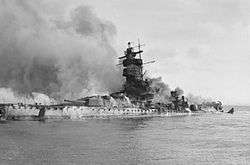George Mantello
| George Mantello | |
|---|---|
| Born |
György Mandl 11 December 1901 Lekence, Transylvania, Austria-Hungary |
| Died |
25 April 1992 (aged 90) Rome, Italy |
| Resting place | Israel |
| Known for | Rescue of Jews during the Holocaust |
| Children | Enrico, Andrea and Susanna |
| Parent(s) | Baruch Yehudah Mandl and Ida Mandl (née Spitz)[1] |
| Relatives |
Rabbi Yitzchok Yaakov Mandl (paternal grandfather) Josef Mandl (brother)[1] |
George Mantello (11 December 1901 – 25 April 1992) was a Jewish diplomat who, while working for the Salvadoran consulate in Geneva, Switzerland from 1942 to 1945, saved thousands of Jews from the Holocaust by providing them with fictive Salvadoran citizenship papers. He was also instrumental in publicizing in mid-1944 the deportation of Hungarian Jews to the Auschwitz concentration camp.
Background
Mantello was born György Mandl to Orthodox Jewish parents – Baruch Yehudah Mandl and Ida Mandl (née Spitz) – in Lekence, Transylvania, a region with mainly Romanian, Hungarian and German ethnic inhabitants which changed hands three times between Hungary and Romania during the 20th century. David Kranzler writes that his father owned a mill and the family was regarded as well-to-do. Mantello had three sisters and two brothers, one of whom, Josef, became involved in Mantello's rescue work.[1]
Second World War
Mantello became a textiles manufacturer in Bucharest, where he met Salvadoran consul Colonel José Arturo Castellanos in the 1930s. After escaping to Switzerland from the Romanian Fascists, he went to work for Castellanos at the Salvadoran consulate in Geneva.
In 1944 he became involved in the effort to halt the deportation of Hungarian Jews to Auschwitz. Mantello sent his friend, a diplomat from Romania, Florian Manoliu, to Hungary, in order to find out what happens there. Manoliu went to Budapest, obtained reports from the Jewish leader Moshe Krausz at the 19 June 1944, and immediately returned with the reports to Geneva.
One of the reports was probably Rabbi Chaim Michael Dov Weissmandl's 5 pages abridged version of the 33 pages full Auschwitz Protocols: both the Vrba–Wetzler report and Rosin- Mordowicz report. The reports described in detail the operations of the Auschwitz-Birkenau murdering factory.[2]
The second one was a 6 pages Hungarian report, that detailed the Ghetoization and deportation of the 435000 already deported Hungarian Jews, updated to the 19 June 1944, town by town, to Auschwitz.[3]
In contrast to many leaders who received these reports and failed to act on them, Mantello publicized the details within a day of receiving them.[3] This triggered a significant grass roots protest in Switzerland, including Sunday masses, street protests and the Swiss Press Campaign; over 400 headlines in the Swiss press demanded (against censorship rules) an end to the deportations. The reports publication resulted in Winston Churchill's letter:""There is no doubt that this persecution of Jews in Hungary and their expulsion from enemy territory is probably the greatest and most horrible crime ever committed in the whole history of the world...." [4] As a result of the press coverage, world leaders issued appeals and warnings to Hungary's Regent, Miklós Horthy, and the mass transports, which had been deporting 12,000 Jews every day since 15 May 1944, ended on 9 July 1944. The lull in deportations made it possible to organize significant rescue activities in Hungary, such as the Raoul Wallenberg and Carl Lutz missions.
See also
Notes
- 1 2 3 Kranzler, David (2000). The Man Who Stopped the Trains to Auschwitz: George Mantello, El Salvador and Switzerland's Finest Hour. Syracuse University Press. pp. 9–10. ISBN 0815628730.
- ↑ "George Mandel-Mantello" The International Raoul Wallenberg Foundation
- 1 2 David Kranzler (2000). The Man Who Stopped the Trains to Auschwitz: George Mantello, El Salvador, and Switzerland's Finest Hour. Syracuse University Press. p. 87. ISBN 978-0-8156-2873-6.
- ↑ Winston Churchill, in a letter to his Foreign Secretary dated July 11, 1944, wrote, "There is no doubt that this persecution of Jews in Hungary and their expulsion from enemy territory is probably the greatest and most horrible crime ever committed in the whole history of the world...." "Winston Churchill's The Second World War and the Holocaust's Uniqueness", Istvan Simon.
Further reading
- Burns, Margie. "El Salvador, a rescuing country" (profile of Mantello), International Raoul Wallenberg Foundation.
- Embassy of El Salvador in Israel. "El Salvador and the Holocaust: An almost unknown chapter in the history of El Salvador."
- Kimche, Jon. "The war's unpaid debt Of honour: How El Salvador saved tens of thousands Of Jews," Jewish Observer and Middle East Review.
- Lamperti, John. "El Salvador's Holocaust Hero", personal website.
- Lévai, Jenö. Zsidósors Európában, Budapest, 1948 (Hungarian)
- Lévai, Jenö. "Abscheu und Grauen vor dem Genocid in aller Welt", Toronto 1968 (German)
- Meyer, Ernie. "The Unknown Hero: One sympathetic foreign diplomat saved thousands of Jews in Europe by providing them with foreign citizenship papers."
- Meyer, Ernie. "The greatest rescue of the Holocaust."
- Pineda, Rafael Ángel Alfaro. "El Salvador and Schindler's list: A valid comparison," Raoul Wallenberg web site.
- "Where is the Conscience of the World?" (editorial), Orthodox Tribune.
